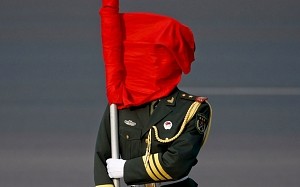
China watchers say Beijing is taking a step back from the aggressive foreign policy stance it has cultivated over the last 10 years
Beijing’s Asian Infrastructure Investment Development Bank marks the opening salvo in a soft power war with the United States
The creation of the prosaic-sounding Asian Infrastructure Investment Development Bank (AIIB) has landed the biggest blow to America’s superpower status in the post-war era.
Such is the verdict of former US Treasury Secretary Larry Summers, one of the West’s foremost public intellectuals and a man whose voice reverberates around the corridors of the world’s chancellories.
Mr Summers has hailed the birth of the China-led institution as the moment the US lost its role as “the underwriter of the global economic system”.
“I can think of no event since Bretton Woods comparable to the combination of China’s effort to establish a major new institution and the failure of the US to persuade dozens of its traditional allies, starting with Britain, to stay out of it,” opined the former president of Harvard and one time candidate to take over the US Federal Reserve.
He is only the latest in a chorus of former Washington insiders who are heralding the Communist nation’s attempts to rival US hegemony in the “soft power” stakes.
What is the AIIB?
The brain-child of Chinese premier Xi Jinping, the AIIB aims to plug chronic infrastructure gaps across Asia. With 46-founding members as it stands, the lender has been dubbed the “World Bank for Asia”, closely mimicking rival organisations such as the Japanese-led Asian Development Bank.
Principally, the bank would act as a funnel for pumping China’s massive foreign exchange reserves into projects to build roads, bridges and mobile phone towers everywhere from Myanmar to Iran.
Beijing has already committed to providing at least $50bn of the $100bn capital needed to jump start the initiative.
Critics however, argue the AIIB is simply a ruse for Beijing to expand its strategic presence in the developing world.
China retorts that the international lender will bolster the financial firepower needed to address a $700bn shortfall in infrastructure investment which existing institutions cannot meet and which will provide a collective economic benefit to the world.
The AIIB’s inception has been long in the making. A foundational agreement to establish the bank was first signed by 21 Asian countries in November.
But it was the response of the United States which precipitated a diplomatic row of far greater significance than the establishment of a development bank.
Washington’s closest European allies chose to openly flout the unsaid prohibitions over their membership. France, Germany, Italy and the UK will all now be founding members of the AIIB when it is due to launch at the end of the year.
Britain’s decision to become the “first Western nation” to submit its interest drew an apoplectic response from the White House.
“We are wary about a trend of constant accommodation of China, which is not the best way to engage with a rising power,” said one US official.
Undeterred, much of the rest of the developed world has followed the UK’s lead and thrown their hat into the AIIB’s ring.
Washington, seeing the fledgling institution as a proxy in the Sino-US rivalry, spectacularly misjudged the mood of its transatlantic allies. The rush to participate in the AIIB highlighted that no major economy was willing to bypass the opportunity to co-operate with the globe’s rising power.
China’s Xi Jinping wants the AIIB to rival the IMF and World Bank
To be continued…… flowing inks




